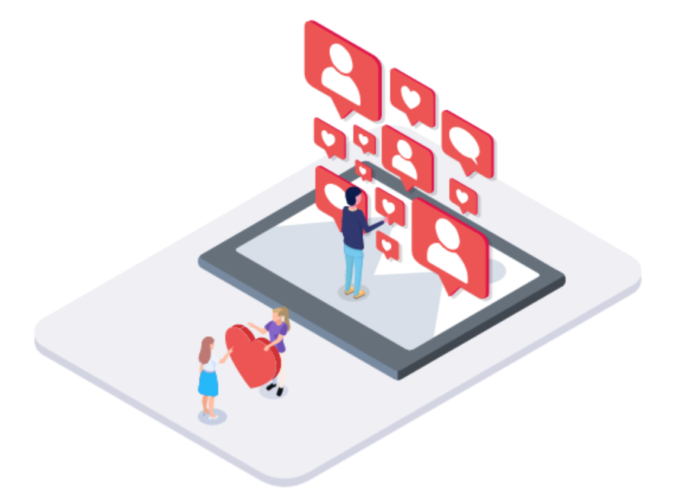Technological development in health care has resulted in continuous progress and vital benefits for societies. The most generalized technological advancement is social media. The term came from the evolution of Web applications that are open and interactive therefore have social nature and are integrated into the traditional Web. So, if you wish to gain online popularity faster, you can address the social media service providers like JayNike. It provides risk-free services, so personal data and accounts are always protected.
Generally, the public views social media as a reliable information source and accessible tool. Still, online technologies are not as efficient as for other industries when it comes to health care. The pros of social media are apparent. It provides a platform for sharing personal experiences, feedback, and reviews. Also, support groups have been created for their members to seek consultation online and connect with others. However, health is an exceptionally subjective thing; people have different, individual experiences about health care services and may spread incorrect and personal fixed information about certain institutions. Moreover, health professionals’ use of social media to deliver patient care has caused debate since the creation and proliferation of multiple online social media sites.
Different Uses of Social Media in Health Care
Social media now provides a venue to discuss medical conditions and services outside of the healthcare institutes. Customers and their families use social media platforms to share their experiences and findings and educate others about similar situations. The various possibilities of social media applications in health include access to educational information derived from health providers and patients. Also, health care professionals often join online communities where they can get relatable updates and consult colleagues regarding patient cases. Many also provide content online in the form of informational articles, which serve as a marketing tool. They use social media to improve health outcomes, engage in professional networks, increase their own and customers’ awareness of news and innovations, encourage patients, and provide comprehensive information to the community. For successful article marketing tips and tricks, some health care professionals may hire a professional writer to help. However, online-spread medical information may pose some risks and complications.
The Risks and Dangers Patients Might Face
If said roughly, you are fortunate to find the correct information about your health condition by searching the symptoms only. As mentioned above, health is a very sensitive and individual concern and needs to be addressed carefully. In this case, finding solutions online is complicated due to the following reasons:
- Questionable Quality Information – a big part of data found on social media lacks reliable sources and reliability, as it is accessible for fake and non competent authorities to publish anything online. Authors of such information are often unknown and unidentifiable. Moreover, social media users may also face risks of becoming victims of hidden conflicts of interest that the industry comprises.
- The inability to control the distribution of fake information, as the speed of data distribution, does not grant much time to regulate and limit them.
- Doctors, other healthcare professionals, and provider institutes are not allowed to discuss their patients’ medical conditions or personal information without the customers’ consent. However, social media sometimes grants anonymity to its users; thus, the proliferation of others’ private data has never been this simple.
- Possible Illegitimate Drug-Selling – Consumers rarely trust drug-selling companies. However, many of them use social media as a marketing tool. Moreover, they spent time and human resources to manipulate the comments and reviews of their products in order to influence users’ attitudes and behaviors.
Customer Decision-Making Process
The evolution of the media influences the decision-making process. On the contrary to its own classic definition, according to which media is just a medium between two parties, social media and technologies shape reality differently from its original state and offer various alternatives that are similarly attractive with distinctive features. The variety of choices may encourage the occurrence of misinformation and dissonance and complicate the decision-making process. Delivering wrong information is never a correct action. However, in the case of health care, the fake data spread on social media might be health and life-threatening for customers. Several behavior studies try to explain how such data affects the decision-making process, which is particularly vital when it comes to one’s mental or physical health. These studies claim that the more diverse the alternatives are, the less their chances of making the correct decision.




